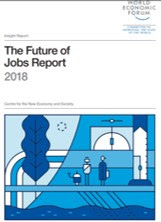What Are ERP
Systems?
Thank You
Wikipedia for This Definition
Enterprise Resource Planning (ERP) is a category of
business-management software—typically a suite of
integrated applications—that an organization can use to collect, store,
manage and interpret data from many business activities including:
·
Product
Planning, Cost
·
Manufacturing
or Service Delivery
·
Marketing
and Sales
·
Inventory Management
·
Shipping
and Payment
ERP provides an integrated view of core business processes,
often in real-time, using common databases maintained by a database
management system. ERP systems track business resources—cash, raw
materials, production capacity—and the status of business commitments:
orders, purchase orders, and payroll. The applications that make up
the system share data across various departments that provide the data (manufacturing,
purchasing, sales, accounting, etc.). ERP facilitates information flow
between all business functions, and manages connections to
outside stakeholders.
Enterprise system software is a multibillion-dollar industry
that produces components that support a variety of business functions. IT
investments have become the largest category of capital expenditure in United
States-based businesses over the past decade. Though early ERP systems
focused on large enterprises, smaller enterprises increasingly use ERP systems.
The ERP system is considered a vital organizational tool because
it integrates varied organizational systems and facilitates error-free
transactions and production. However, developing an ERP system differs from
traditional system development. ERP systems run on a variety of computer
hardware and network configurations typically using
a database as an information repository.
OK,
isn’t that perfectly clear now? Maybe
not, so a simple explanation is to say that any organization wanting to run
efficiently and cost-effectively needs ERP.
If you work for an organization that sells products and/or services that
customers want - ERP is used. If you go
to a store and buy products/services or purchase via the Internet, have
items delivered or return damaged goods, an ERP system makes this happen.
ERP
is basically software that helps organizations manage their financials, supply
chain, manufacturing, operations, reporting and human resources. Most ERP systems can run with on-premise
servers or in the cloud to improve and automate the core parts of business:
· Financial Management - Control over assets, cash flow
and accounting
· Supply Chain (SCM) and Operations Management - Streamline purchasing,
manufacturing, inventory and sales order processing
· Customer Relationship Management (CRM) - Improve
customer service and increase sales opportunities
· Project Management - Deliver work on time and on
budget with better billing and project monitoring
· Human Capital Management (HCM) - Attract and
retain good employees with tools to help hire, manage and pay personnel
· Business Intelligence - Easy-to-use
reporting, analysis and business intelligence tools
These
systems start out by helping organizations keep their books organized. ERP grows to support internal operations and
then electronically connects with customers, suppliers and other business partners
in the design, planning, production and
distribution of goods and services. Business transactions can be
totally digital with virtually no paper or manual steps involved. This is Efficient, Cost-Effective and ERP!
Depending
on an organization's size and needs, there are a number of ERP software solutions
to choose from:
Tier I – Large Enterprise ERP
Tier II – Mid-Market ERP
Tier III – Small Business ERP
ERP
is evolving quickly to include Mobile, Cloud and Social Media features. Businesses now need real-time access with their
ERP no matter where their people work.
The move from on-premise to cloud solutions has sped up but isn’t
perfect yet. The use of social media by
business is important. However, there
are questions about the gains to be made by integrating social media with ERP
solutions.
There
are hundreds of ERP solutions today, some generic and others for specific
industries. Some are free/open-source
but most aren’t. Notable solution
providers are SAP, Oracle, Microsoft, Infor, IBM, NetSuite, Sage, Epicor, Exact
and many, many more. The large number of
solutions to choose from often makes the selection process complex and time-consuming. It is always best to know what you want ERP
to do for your organization before going shopping.
Many
more details and examples are coming to this site soon. Here are a few upcoming Blog post topics:
· Who Needs an ERP
System?
· Which ERP Solution
is Best – Tier I, II or III
· Best Practices for
Choosing an ERP System
· ERP Implementation
and Gotchas
· Failed ERP Project
Lessons
· Technology Trends
for Future ERP Systems
· ERP Cloud
Solutions vs. On-Premise Servers
· Security and
Privacy






